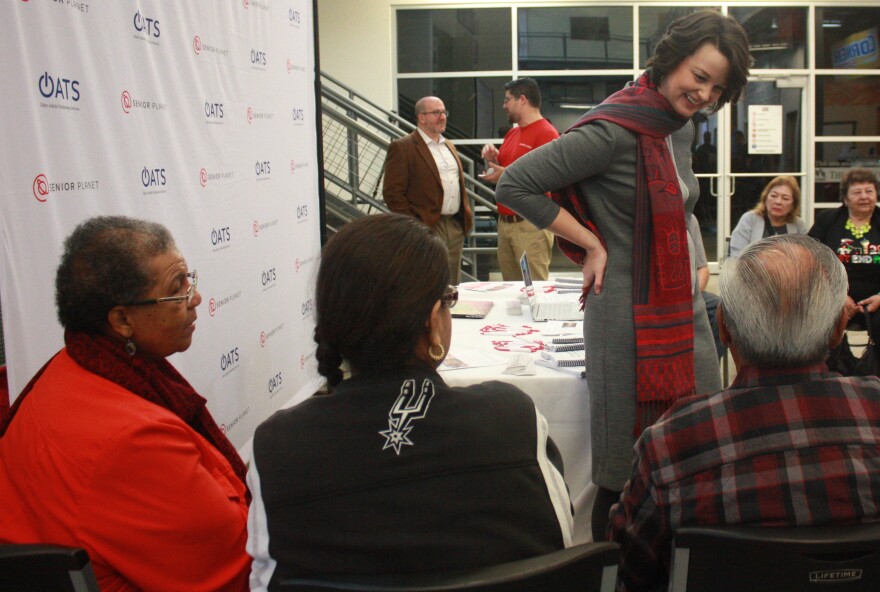It might get easier for San Antonio seniors to live in an increasingly online world. A nonprofit expanding to San Antonio is addressing the digital divide for seniors.
With a million dollar gift from the Humana Foundation on Friday, Older Adults Technology Services launched at four senior centers across San Antonio. It wants to connect with 650 seniors by the end of December at as many as 12 locations and grow to more than 1,000 by the end of a year.
OATS’ Senior Planet program provides hands-on training twice a week to seniors who want to learn how to use their devices, be active on social media, and access services that are increasingly online.
“The big problem is fear — fear and ageism,” said Thomas Kamber, OATS executive director. “People are told that they’re too old to learn. The reality is that I know 90 year-olds who are learning and doing a lot more productive stuff than 25 year-olds.”
In a Pew Research Center study released last year, more than a third of people over 65 said they had little or no confidence in their use of the internet. Locally, a little under 9 percent — or 12,000 — registered patrons of Bexar County’s digital library Bibliotech are over 65.
The 10-week program tries to create connections among its participants. Digital literacy and skills lead people to feel less isolated, Kamber said,
“It looks like the difference between having friends and not having friends,” Kamber said.
He added: “The majority of the people we are talking to talk to one or two people every week.”
For other seniors, it’s about more than social networking.
Paula Cmielawski, 63, is interested in the advanced courses and learning more about programs like Excel and PowerPoint.
The lack of digital literacy also has big implications for income and health, according to Federal Reserve senior adviser Jordana Barton.
“Older Americans are on the wrong side of the digital divide,” she said. “Connectivity is critical to people being able to age in place.”
According to the Census Bureau’s Supplemental Poverty Measure, more than 14 percent of people over 65 live in poverty.
“They might have retirement but it might not be quite enough,” she said. “So they can do internet jobs and work in the gig economy and income patch.”
OATS has programs active in 10 markets, including South Florida and New York City, where it was founded. It has a year to meet goals set with the Humana Foundation. Funding may be extended to three years.

“We are absolutely looking for a long-term partnership,” said Leslie Clements, program officer for the foundation. “The fact that they were able to successfully scale from New York City to the rural area of New York state and then into Colorado proves they know how to make their model work in different cities.”
If they are renewed, Kamber said they would affect the lives of tens of thousands of San Antonio seniors.
The Senior Planet program is currently available at the Bob Ross, Northeast, Southside Lions Park and West End Park senior centers.
The San Antonio Food Bank was also given $833,000 from the Humana Foundation to address food insecure seniors. The money will be used to create a food delivery system that works to address shortfalls for the elderly some who already receive Meals on Wheels.
Paul Flahive can be reached at paul@tpr.org or followed on Twitter @paulflahive



